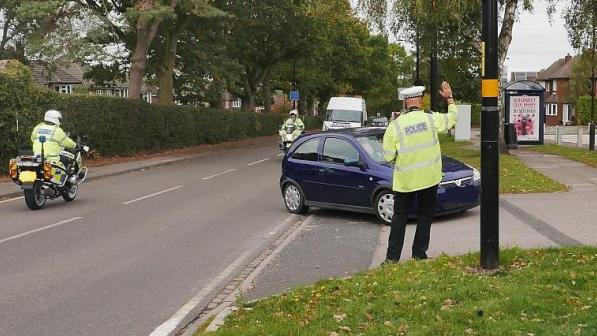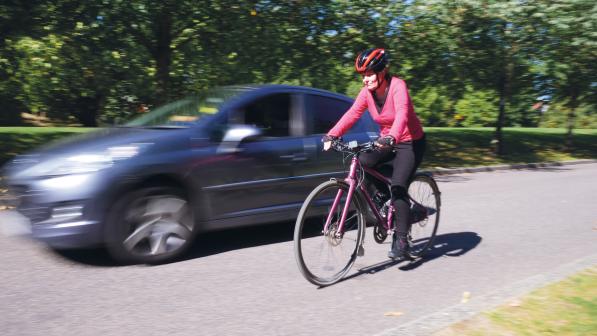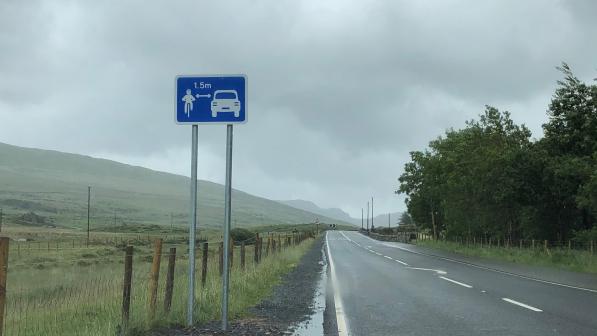Day of action on close passing is testament to the legacy of WMP officers
Four and a half years ago, two West Midlands police officers had an innovative idea. Dangerous overtaking has, I think it’s fair to assume, been a problem for cyclists since the roads first started being shared with faster, larger, and heavier motor vehicles. But until the dynamic duo of PC’s Mark Hodson and Steve Hudson came along, there was little police could do to tackle the problem.
Recognising the need for action, Mark and Steve developed the now famous Operation Close Pass. Using relatively new technology (handlebar cameras), they switched uniforms for cycling gear and hit the roads, identifying drivers who passed too close so that colleagues down the road could pull them over and offer an educational intervention – or a fine if appropriate.

The operation was widely hailed as a huge success, with Cycling UK proclaiming it to be the “best cyclist road safety initiative ever”. Since then, the operation has gone from strength to strength, hitting a huge milestone on Wednesday this week, when police forces from across the UK coordinated, for the first time, a national day of action on close passing.
From Shropshire to Staffordshire, West Mercia to East Antrim, Sussex to Northumbria, and in many other forces, police were out on their bikes, educating drivers about safe overtaking.
To some, just under half a decade may seem like a long time to wait, given the immediate success of the operation in the West Midlands, and it’s not the first time that the forces involved have run operations – many have been doing so since soon after West Midlands.
However, I certainly believe that this level of national coordination and support is worth celebrating, especially given that this day of action was pushed from the top, by the National Roads Policing Operation and Intelligence Unit, a branch of the National Police Chiefs Council – something which would have been hard to imagine five years ago.
Along the way, there have been plenty of challenges. Soon after that first operation, when Cycling UK was asking other forces to do the same, the cost of the ‘Close Pass Mat’ deterred many. Cycling UK members and supporters responded incredibly, contributing funding to provide close pass mats to every UK police force in just 24 hours after our crowdfunded campaign launched.
However, it soon became clear that in some areas, there was more work to be done. While many forces did embrace the concept, it can’t be denied that others dragged their heels. Indeed, the negative responses from some police forces highlighted that there was a deeper challenge ahead of us – it wasn’t simply about getting police to carry out the operation, but there was a need to completely change the attitude of some roads policing units towards cyclists’ road safety.
One force claimed it was ‘not practical due to lack of road space’, complaining that drivers would be forced to move into the opposite lane to overtake (not realising that that’s the whole point), and that this would cause them to become stuck behind cyclists too often.
Another suggested that they would be better off targeting cyclists, even though cyclists have amongst the lowest level of ‘contributory factors’ assigned to them by police after collisions. A third simply said that cyclist fatalities weren’t high enough – leading campaigners to ask how many more deaths were needed for an operation to be launched.
However, through the combined efforts of many local cycle campaigners, Cycling UK on a national level, and other organisations such as the Road Danger Reduction Forum, one by one, initially reluctant or ever opposed forces came on board, and it’s hugely telling that all of the above mentioned forces have since changed tack and launched operations.
That’s why Wednesday was such an important milestone. The growth of Operation Close Pass has been a story of people chipping in and getting things done – whether they’ve been helping fund a close pass mat, researching casualty statistics to encourage a local force to get involved, or even, like the Design Works, creating ‘Pass Cyclists Safety’ signage free of charge for police forces to use.

Of course, there’s still work to be done, and I know some readers will feel there’s plenty more their police forces could be doing to make the roads safer for cycling. But this milestone is certainly not seen by anyone as a finishing line, quite the opposite – it’s a springboard for more action.
But it’s also a time to reflect on the legacy left by PC’s Mark Hodson and Steve Hudson: without their pioneering vision, there’s simply no way we’d be where we are today. As part of the day of action, West Midlands Police also recognised their hugely important contribution to cyclist’s safety and roads policing by running multiple operation across the county for the first time. One of those, fittingly, saw a return to Hagley Road, where the original operation was launched.
So, here’s to Steve and Mark, and to five more years collaboration and innovation to make our roads safer for cycling.


